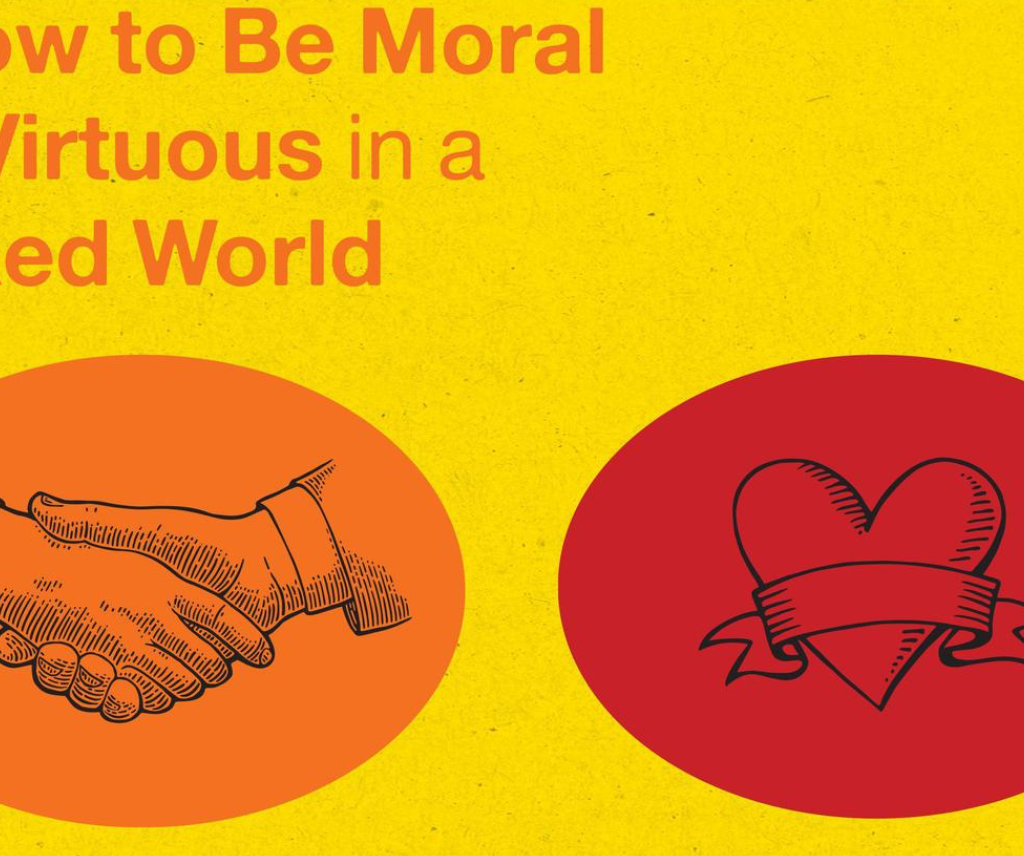Review: How to Be Good by Gary Cox
In his recent book Humankind Rutger Bregman argues that we need to focus more on the good in people, which promotes people doing more good, a noble notion. But hang on a minute, when we talk about the good, how do we decide what is good? Bregman assumes a level of agreement on what is good, but ethics has always been an area of disagreement, and many bad things have been done under the assumption that they are good. Even things that may seem at first obvious, aren’t. Looking after our family first would seem prudent, but Jesus disagrees. What about putting your country first? Look at the way Trump has dredged up hatred with that idea. When it comes to the treatment of refugees, both those who advocate locking them up and those who advocate a more tolerant stance think they are doing good.
In How to be Good, which is more philosophy 101 than self-help, Gary Cox discusses metaethics, the philosophy of where ethical premises come from and how we decide ethical issues, and, to a lesser extent, shows with particular ethical issues, how that might play out in practice. Like a good philosopher after Socrates, he pushes theory to its extremes to note its weaknesses, such as the one that suggests that all acts of charity can be traced back to some form of self-interest. He also seems, at times, certain he has clinched certain arguments, which the reader may or may not agree with.
He notes that some philosophers say that the good is not a fact like in maths, but rather an opinion or a set of cultural guidelines (which is not to say necessarily that anything goes). Others say we can be more objective about ethics, and point to universal do’s and don’ts, that may be imposed from above. Traditionally, in Christianity, the good is inseparable from God, but a well-known philosophical conundrum (the Euthyphro dilemma) is whether God could call pretty much anything good or has to abide by some sort of logic of what is good (a choice that always seems to me to be a rather short-sighted way of looking at it, rendering God as either tyrant or school-teacher). Either way, although Cox pictures the religious as rather unthinking followers, even within Christianity the good is not always obvious and requires some thought. An unkind reader might suggest that philosophy only makes this situation worse, although Cox does his best to offer guidance. He takes a tour of the various approaches and says which he likes best.
For Immanuel Kant, a resolve to do one’s duty, rather than actions, are key to how we judge what is good, but this can lead to some dubious conclusions, as does Nietzsche’s philosophy of the good being associated with strength, of which Cox seems largely to approve. Nietzsche disdained Christianity for an emphasis on weakness and self-denial – what he called a ‘slave-mentality’, and although Cox suggests Nietzsche was unfairly used by the Nazis, there is a clear line from Nietzsche to Nazi ideology, which of course was the opposite of slave-mentality. Nietzsche’s emphasis on power always sounds elitist. Christianity, in contrast, looks like a radical alternative. As Terry Eagleton says, it’s a kind of anti-religion, subverting the rule of elites to the point of paradox (the meek shall inherit the earth). But to many, this doesn’t look like wisdom.
Cox’s own advice, some influenced by Nietzsche, is sometimes sensible, sometimes sounding like Republican Americans: don’t litter (something he’s particularly passionate about), be courageous, regret nothing, be tough, be moderate. He certainly doesn’t advise giving away all you have to the poor.
Nick Mattiske blogs on books at coburgreviewofbooks.wordpress.com














